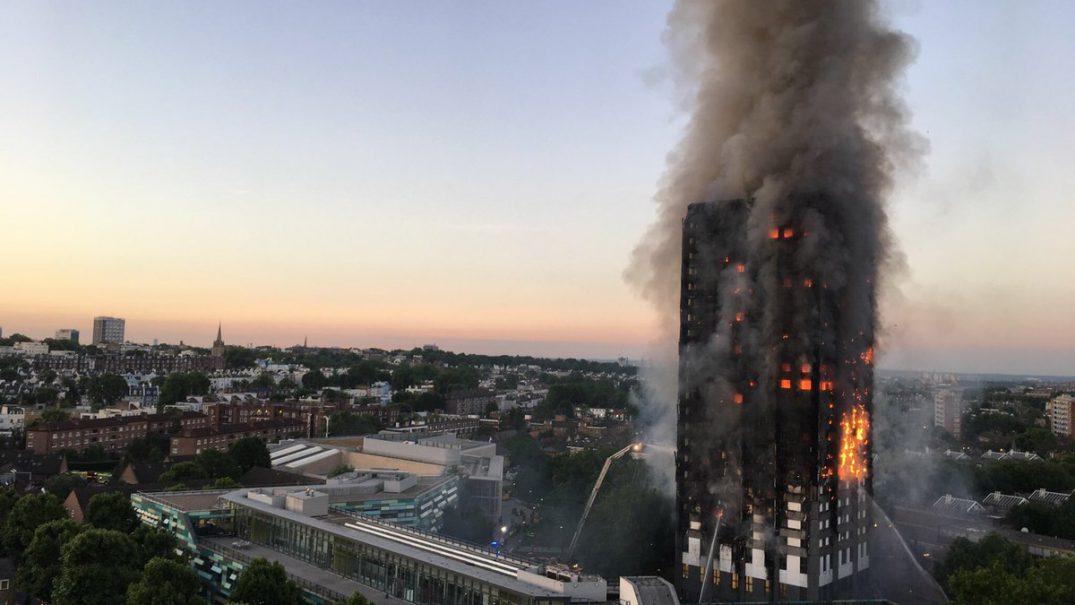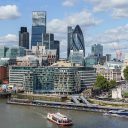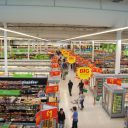A fire in the world’s laundromat

This isn’t a story about the disaster in Grenfell tower. If you want to know about that, then I recommend Dawn Foster. But it is a story about housing in London. It is a story about how communities became commodities and people were subordinated to money. And it is an important part of the under told history of modern Britain.
But it starts with a Neapolitan. Specifically, with the body-guard protected writer Roberto Saviano. The Italian author and journalist is well-known world-wide as the leading expert in the Calambrian mafia. Saviano has written about crime in Italy and about international drug money. He’s followed the flows of cash and he’s been awarded numerous prizes and honourary degrees for his work. But of all of the places he’s researched, he holds particular contempt for one.
Speaking last year, Saviano said:
“If I asked you what is the most corrupt place on Earth, you might tell me, well it’s Afghanistan, maybe Greece, Nigeria, the South of Italy and I will tell you it’s the UK.”
This isn’t because he thinks that the police in Britain generally accept more bribes than others, nor that our politicians stuff their brief cases with brown envelopes more than others. Rather, it’s because of the role of the City of London in laundering the proceeds of crime across the world. It’s because of the place that London takes at the heart of the planet’s biggest network of tax-havens and secrecy areas; which extends to our Overseas Territories, through the Crown Protectorates, and into the imperial metropolis itself.
But it’s not just Saviano, and it’s it just about the Cayman islands. Last year, the MPs of the Home Affairs Select Committee investigated London’s role in money laundering. Here’s their own summary of what their report says:
“poor supervision and enforcement in the London property investment market are making a safe haven for laundering the proceeds of crime. It calls for much stronger supervision of agents, buyers and sellers. It also says that the key tool for detecting suspicious financial activity across the financial services sector and connected industries, such as real estate, is overloaded to the point of being “completely ineffective”.”
The National Crime Agency agrees. And their 2015 report pointed out that the effect of tens of billions of pounds of criminal cash being sequestered through the London property market each year was to drive up property prices in the city.
Which seems pretty obvious. If you are a member of the world’s criminal elite, and you want to find a way to ‘clean up’ your cash, then one of the prime ways to do it is to buy a building in London. This increases demand for expensive London houses, which in turn puts pressure on the market as a whole.
Only, it’s not just a market. It is also a city, a collection of communities, a few million homes, lived in by people whose lives are more than numbers on spreadsheets. Yet we often fail to talk about the impact on the people living in the world’s laundromat.
And, of course, the answer is complex. The soaring house prices in London aren’t just about criminal cash. Capitalism works by extracting and investing surplus value. It is always hunting for new physical spaces, whether though foreign investment, or empire or gentrification. It will always disregard those who don’t fit neatly into the boxes in its profit maximising business plans. These things aren’t new.
But it is also about criminal cash. London’s place at the heart of crime and corruption across the planet does contribute significantly to the heat and the speed of the unfolding housing crisis in the city. It is one of the reasons that in much of London, a landlord earns more each year from the rise in the price of their property than a firefighter does from saving the lives of their tenants if it burns down; and why that same landlord is likely to make more money buying a second property than ensuring that the first one is mould-free or fire-safe.
And as criminal money pumps ever more air into the London housing bubble, driving up the prices in generally expensive areas, it’s no wonder that, to some, the relative value of the lives of the ordinary people who live there seem to diminish by comparison. It’s no wonder that priorities are warped by the heat of the market. It’s no wonder that people feel like councillors and developers want them out, like they have bigger things on their minds than basic fire-safety measures in aging tower blocks populated only by the kind of people who get in the way of plans for ‘regeneration’.
This isn’t a story about the Grenfell Tower disaster. The causes of that are complex, and we don’t yet know them all. But it is the story of what’s happening to the homes and lives of ordinary people in London. It’s a story about how communities became commodities. And it’s hard not to see the horrific events unfolding in West London as yet another horrific example of what happens when the needs of people are subsumed to the needs of the market.






